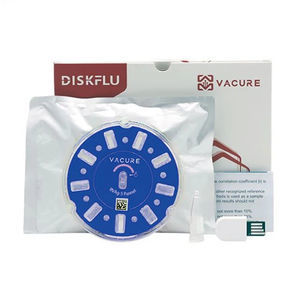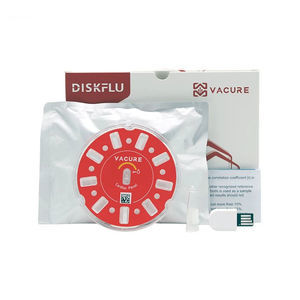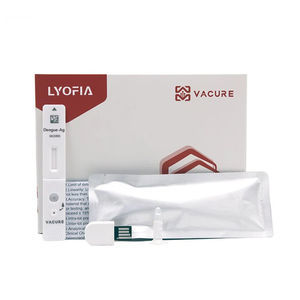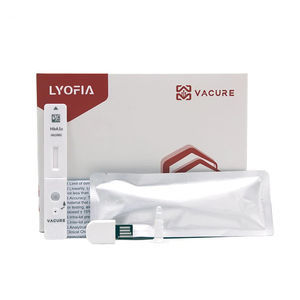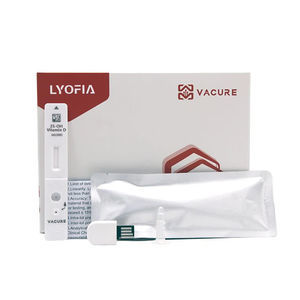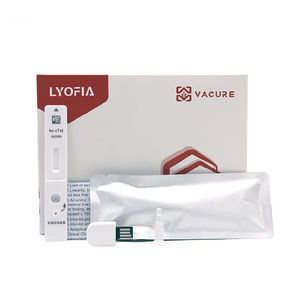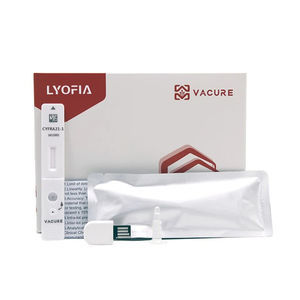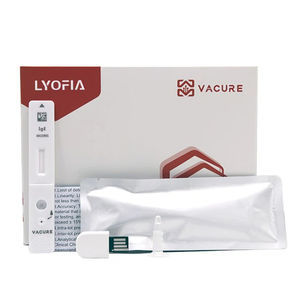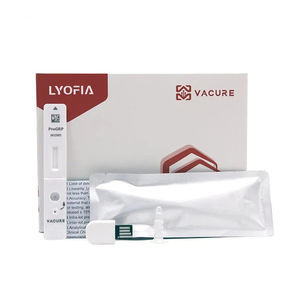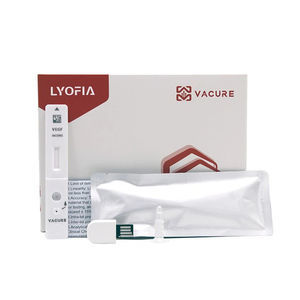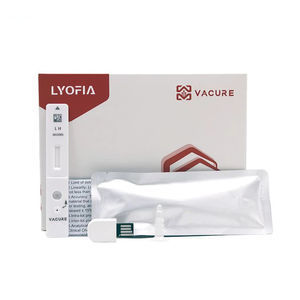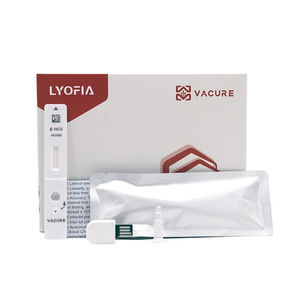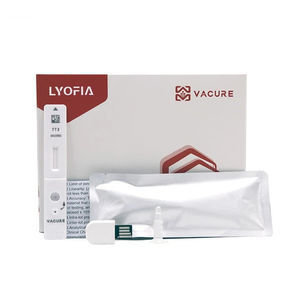
- Laboratory
- Laboratory medicine
- Thyroid disease test kit
- Chengdu Vacure Biotechnology Co., Ltd

- Products
- Catalogs
- News & Trends
- Exhibitions
Thyroid disease test kit LYOFIA® total T4bloodserum
Add to favorites
Compare this product
Characteristics
- Applications
- for thyroid diseases
- Tested parameter
- total T4
- Sample type
- blood, serum, plasma
- Analysis mode
- immunoassay
- Format
- cassette
- Result display time
10 min
Description
The Fluorescent Immunoassay TT4 POCT kit test is used to evaluate thyroid function and diagnose thyroid disease.
Summary
Thyroxine (T4) is the main hormone secreted by the thyroid gland. It is released into the blood circulation in a free form, and most (more than 99%) are bound to proteins in the plasma, called the bound state. There is also a very small amount of T4 Not bound to proteins in plasma, known as free state. Although conjugated thyroid hormones account for the vast majority in the blood, it is still free thyroid hormones that really play a physiological role. Its main functions are to maintain growth and development, promote metabolism, produce nervous system and cardiovascular effects, affect the growth of long bones and the development of the brain. Total thyroxine (TT4) refers to the sum of free and bound thyroxine in serum, and the detection of TT4 is clinically used as an auxiliary diagnosis of thyroid dysfunction.
Elevated TT4 is seen in:
①hyperthyroidism (including primary, secondary hyperthyroidism, autonomic nodules, T4 hyperthyroidism), thyroid synthesis and secretion of TT4 increase;
②neonatal transient hyperthyroidism;
③subacute hyperthyroidism Thyroiditis and painless thyroiditis (such as chronic lymphocytic thyroiditis);
④ taking a large amount of thyroxine and animal thyroid;
⑤oral contraceptives, estrogen, hepatitis, hereditary TBG increase, drug abuse, etc. can all increase TT4;
⑥TSH inappropriate secretion syndrome increased.
Reduced TT4 is seen in:
①When thyroid function is reduced, TT4 is reduced;
②Thyroid deficiency, or congenital dysplasia, blood TT4 deficiency after total thyroidectomy;
Other Chengdu Vacure Biotechnology Co., Ltd products
POCT Test Reagents
Related Searches
- Assay kit
- Solution reagent kit
- Blood assay kit
- Molecular biology reagent kit
- Serum assay kit
- Immunoassay assay kit
- Plasma assay kit
- Infectious disease detection kit
- Blood rapid diagnostic test
- Diagnostic reagent kit
- Protein reagent kit
- Cassette rapid diagnostic test
- Molecular test kit
- Whole blood detection kit
- Serum rapid diagnostic test
- Respiratory infection test kit
- Plasma rapid diagnostic test
- Clinical assay kit
- Optical assay kit
- Cassette assay kit
*Prices are pre-tax. They exclude delivery charges and customs duties and do not include additional charges for installation or activation options. Prices are indicative only and may vary by country, with changes to the cost of raw materials and exchange rates.

